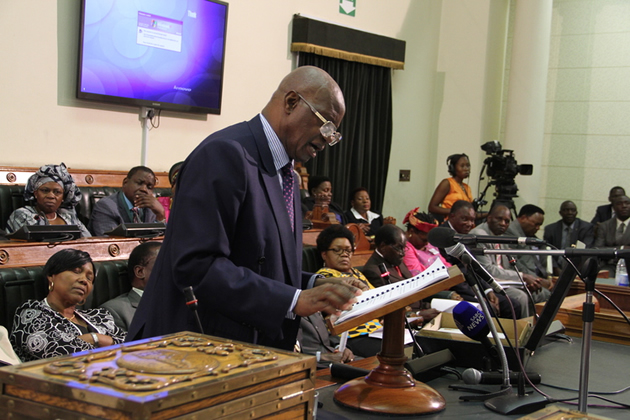4,619 companies collapse 55,443 workers stranded

Business Editor
AT least 55,000 workers have lost their jobs over the past three years after 4,610 companies closed shop countrywide, Finance and Economic Development Minister, Patrick Chinamasa said yesterday.
Presenting the 2015 national budget statement in Parliament yesterday Minister Chinamasa said urgent injection of fresh capital was critical towards resuscitating ailing industries whose capacity utilisation has dropped by three percent from 39 percent to 36 percent, according to the Confederation of Zimbabwe Industries (CZI) survey.
The minister reported that 2,130 firms closed shop in 2011 and left 19,121 workers stranded.
He said in 2012 a total of 1,468 companies also shut down and rendered about 20,825 workers jobless.
Last year 878 firms also collapsed and offloaded 14,499 workers.
So far this year, said Minister Chinamasa, 134 companies have closed shop leaving 928 destitute.
Altogether the minister said 4,610 companies have collapsed since 2011, leaving 55,443 workers stranded.
“Fresh capital injection is needed for retooling, overhaul of antiquated machinery and recapitalisation to ensure we rescuscitate our industry,” he said.
The minister said part of the measures to revive industry bordered around clarification of indigenisation regulations, removing bottlenecks around the ease of doing business, reviewing pricing and labour impediments and attracting increased foreign direct investment.
“In summary, the main areas frustrating potential investors and compromise the country’s competitiveness relate to licensing processes, multiplicity of levies, multiplicity of authorities and delays in utility connections,” said Minister Chinamasa.
“Starting a business in Zimbabwe is confronted with numerous and long licensing processes, which are primarily administrative.
“These relate to plan approvals, investment registration, permit and licence issuance, connection of utilities, such as water and power.”
He said formalities for setting up a typical formal housing delivery project in Zimbabwe, for instance, takes a minimum of 53 months (4,5 years), primarily reflecting bureaucracy and inefficiencies in national institutions and local authorities.
He cited the World Bank’s doing business indicators report, which indicates the average number of procedures for starting a business in Zimbabwe is nine against 7.8 in sub Saharan Africa and 4.8 for developed countries.
“The average time and cost for establishing a business in neighboring countries such as South Africa is 19 days, and 0.3 percent of income per capita and Mauritius, six days and 3.6 percent, respectively.
“This is against Zimbabwe’s average period of 90 days and 141.2 percent of income per capita,” said the minister.








Comments